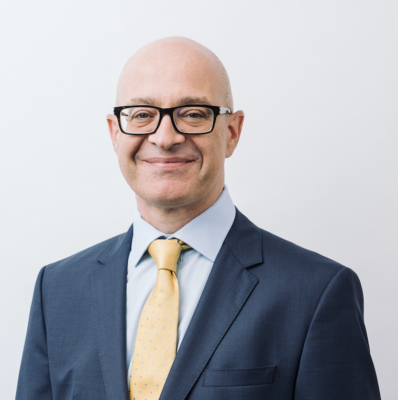By Gavin Sharpe
As a therapist, I work with people who have been sexually assaulted, and I can tell you the real reasons they don’t speak up.
This week, Anne Robinson expressed “despair” with “modern women” who remain silent over incidents of sexual harassment. She deemed women today as “fragile.” It appears we just don’t make women the way we used to. Her solution is that women should not tolerate it.
As a therapist, I work with many “modern women” who remain or have remained silent about their experiences of sexual harassment. There are many reasons why this may be the case. Being “fragile” is not one of them.
One of the principal reasons why men and women do not speak out about such experiences lies in the fact they will have had previous traumatic experiences of harassment or abuse. Those past experiences can affect our ability to respond in the present, and that is likely to be the case here.
We have three nervous system responses to trauma. They are the automatic survival actions of fight, flight, and freeze. They are based on our assessment of the danger at the time of the trauma. We instinctively assess whether survival seems best achieved through fighting the threat, escaping it, or the more complex response of freezing. If we instinctively froze during a previous trauma, that may impact our resources to deal with a present situation.
The reason that a woman may not speak up in the here and now is that she can’t easily do so. When the office sex pest harasses a woman, it is possible that she re-experiences the physical sensations and emotions connected with the original trauma. It’s as if the previous trauma is happening all over again.
If she froze in the past, she may well feel disempowered and frozen to respond in the present. She may have chosen unconsciously to bury the past. Coming forward now would only trigger those unprocessed feelings. So she stays silent, consciously or unconsciously, until it feels safe to come forward.
For women who have never experienced a trauma or did but fell into the “fight” response category, that is a different but still very valid story. But we can’t fall into the trap of judging those whose story is different to that. Let them tell their story using their voices, in their time.
Another reason women do not come forward is shame. When faced with shame, our tendency is to hide or escape the event that elicited the painful emotion. So we may not all rush forward to tell the world that we are being sexually harassed. Shame also comes with a sense of powerlessness as well as a belief that we are fundamentally flawed. So many people feel that they will not be believed or that it is their fault.
The women Anne Robinson referred to have not called out the men who have harassed them – but she did call out those women. In doing so, it compounds the shame and potentially silences others from coming forward. Shame is one of the most difficult emotions to work with in the therapy room. It’s contagious and toxic.
I worked with a client in therapy who would not speak about her previous experience of continued sexual harassment at work until the harasser was dead. Only then did she feel safe. She is also the CEO of her own company. Robust enough for you, Anne?
By all means let’s have a debate about what’s appropriate and not appropriate in the workplace, or how we define healthy flirtation and healthy sexuality in today’s age (it’s a much-needed debate), but let’s not rush to label our fellow human beings as “fragile.”
Anne Robinson has accused women today of not being “robust.” She is not empowering these women, which I suspect and hope was her intention. In the meantime, she has sent out a cruel message that women who have not come forward to report incidents of sexual harassment or have waited to do so are the weakest link.
This article was originally published on the LiveLoveLearn.Global website at this link.
***
 Gavin Sharpe hosts our Thursday (10 a.m. Pacific) Sex, Love, and Addiction drop-in discussion group for men. He is an accredited psychotherapist with the British Association for Counselling & Psychotherapy (MBACP). He is also a Certified Sex Addiction Therapist (CSAT) candidate. Gavin works with individuals and couples (heterosexual and same-sex) affected by issues relating to sex and intimacy disorders, as well as those experiencing broader mental health problems. As an integratively trained psychotherapist, Gavin works according to the needs of each client, drawing on a range of therapeutic techniques. He believes that within all of us lies the resources to live the life that we were born capable of living. Gavin also works on intensive programs and groups structured to support sex, porn, and love addiction treatment. Gavin is based in Monaco and works with the English-speaking communities on the French Riviera as well as with other ex-pat communities in Southern Europe. Previously, Gavin enjoyed a corporate career in the City of London working as a lawyer and then founded his own international recruitment business.
Gavin Sharpe hosts our Thursday (10 a.m. Pacific) Sex, Love, and Addiction drop-in discussion group for men. He is an accredited psychotherapist with the British Association for Counselling & Psychotherapy (MBACP). He is also a Certified Sex Addiction Therapist (CSAT) candidate. Gavin works with individuals and couples (heterosexual and same-sex) affected by issues relating to sex and intimacy disorders, as well as those experiencing broader mental health problems. As an integratively trained psychotherapist, Gavin works according to the needs of each client, drawing on a range of therapeutic techniques. He believes that within all of us lies the resources to live the life that we were born capable of living. Gavin also works on intensive programs and groups structured to support sex, porn, and love addiction treatment. Gavin is based in Monaco and works with the English-speaking communities on the French Riviera as well as with other ex-pat communities in Southern Europe. Previously, Gavin enjoyed a corporate career in the City of London working as a lawyer and then founded his own international recruitment business.
